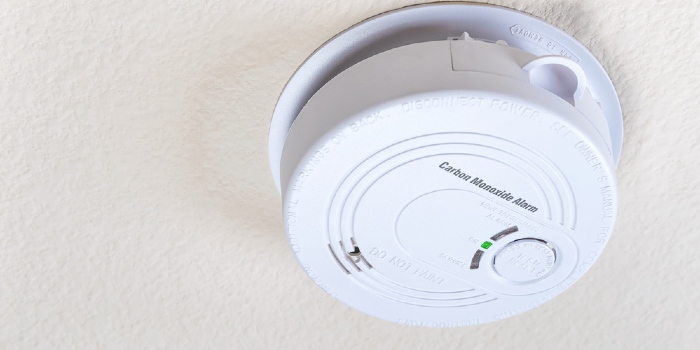Propertymark warns landlords and agencies that new regulations in relation to the fitting of smoke and carbon monoxide alarms in rented properties could come in soon.
The industry trade body has said that as the new regulations could come in as soon as this autumn, landlords and agents should already ensure that they are compliant.
The Department of Levelling Up, Housing and Communities (DLUHC) has confirmed this and has also urged agents and landlords to act now.
Why Are There New Regulations?
In November 2020, the UK Government wanted to know the views of industry insiders about potential changes to the Smoke and Carbon Monoxide Alarm Regulations (England) 2015. The consultation only covered rented accommodation, including social housing, in England.
According to the consultation document, in 2019/20 fire and rescue services had to attend almost 30,000 fires at homes in England. With nearly 200 people having died in those incidents. There are also approximately 20 deaths from accidental carbon monoxide poisoning every year.
The proposed changes to the regulations aim at making rented accommodation safer and preventing deaths.
According to the Government, 161 responses to the consultation from individuals and organisations have been received.
These responses came from landlord representative bodies both for social and private rented housing, residents, housing charities, local authorities, industry professionals and representatives for fire and rescue.
As a result of the support for the proposed changes, the Government extended the rules back in November 2021 after having gained parliamentary approval. Now the DLUHC says that these new regulations could come into effect as soon as Autumn 2022.
What Are The Current Regulations?
Since October 2015, landlords have the responsibility to install a smoke alarm on every floor of their rental property with a room that is used completely or partially as living accommodation.
In every room where solid fuel is burnt, a carbon monoxide alarm has to be installed. This includes the burning of wood, coal or biomass and also covers open fires. However, it does not include gas, oil or LPG.
At the start of each tenancy, the landlord or agent has to test that the alarms function and replace them if they don’t work.
The current regulations only oblige landlords to check that alarms are in working order on the first day of a new tenancy.
Timothy Douglas, Head of Policy and Campaigns at Propertymark
The Proposed Changes
The new regulations, that are expected to come into effect in autumn this year, contain the following changes:
- it will be mandatory to install carbon monoxide alarms in any room with a fixed combustion appliance – this does not include gas cookers – this covers both private and social rental properties
- if any new heating appliance is installed (again not including gas cookers) then it will also be mandatory to install a carbon monoxide alarm in the room – this will also be covered through building regulations and applies to all tenures
- if any of the alarms is broken, private as well as social landlords are obliged to repair or replace them as soon as the fault has been made known to them
- all social rented properties must have smoke alarms
The DLUHC is urging landlords and registered social housing providers to check if they are compliant now and make any necessary repairs immediately.
Once the new regulations have come into effect, any social or private landlord found in breach of the new rules could be fined. Propertymark is also urging the sector to implement the changes now, rather than waiting for the new regulations to come into force.
Letting agents should be aware that the changes will introduce an obligation on private landlords to repair or replace any alarm which is found to be faulty during the period of a tenancy. […] Ahead of implementation, agents and their landlords should start now to plan for the changes and the impact on management practices going forward.
Timothy Douglas, Head of Policy and Campaigns at Propertymark
These new regulations will only cover social and private rented accommodation in England. Wales, Scotland and Northern Ireland have their own regulations.
Current Regulations In The Other Nations
In Wales, landlords have to ensure that at least one smoke alarm is installed on each floor. At the beginning of each tenancy the smoke alarms must be in good working order. In regard to carbon monoxide alarms, these have to be fitted in every room with a solid-fuel burning appliance.
It is expected that this guidance will be updated, however, in July 2022 when the Renting Homes Act (Wales) 2016 is implemented.
Scotland has introduced new regulations in February 2022. All homes (rented or owned) must have interlinked smoke and heat alarms. The smoke alarms have to be positioned on each floor in hallways or on landings.
Furthermore, the room that is most used during the day must have a smoke alarm installed. And every kitchen must have a heat alarm. Every room with a carbon-fuelled appliance must have a carbon monoxide detector.
In Northern Ireland, all homes with new fossil fuel appliances must have a carbon monoxide alarm.




